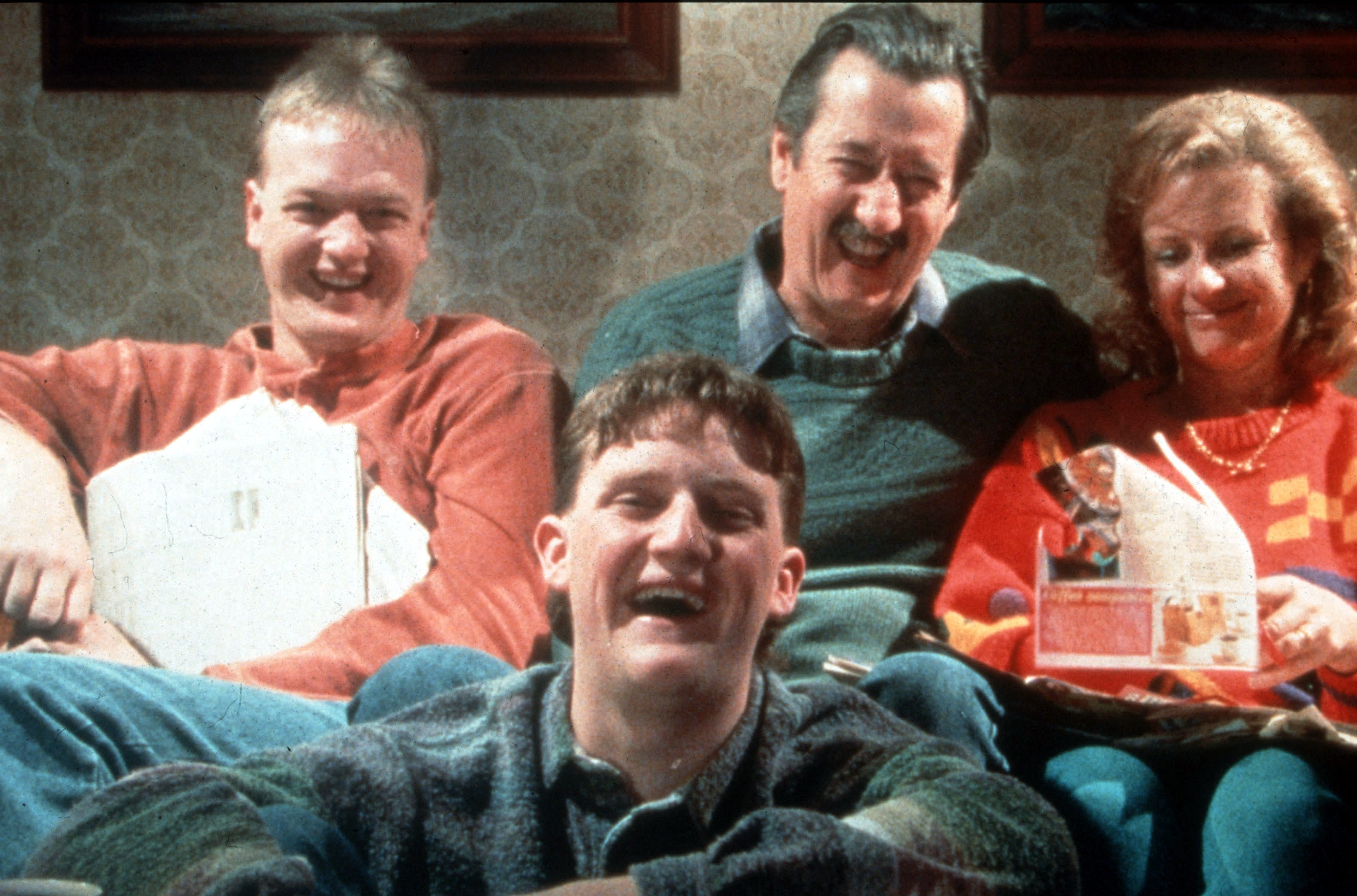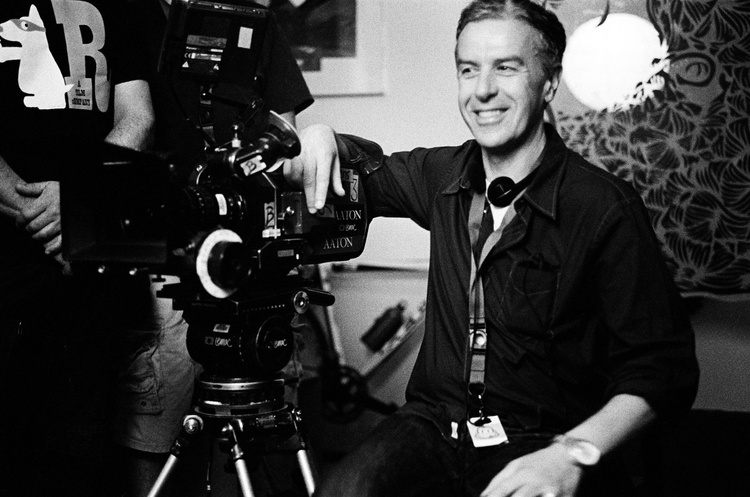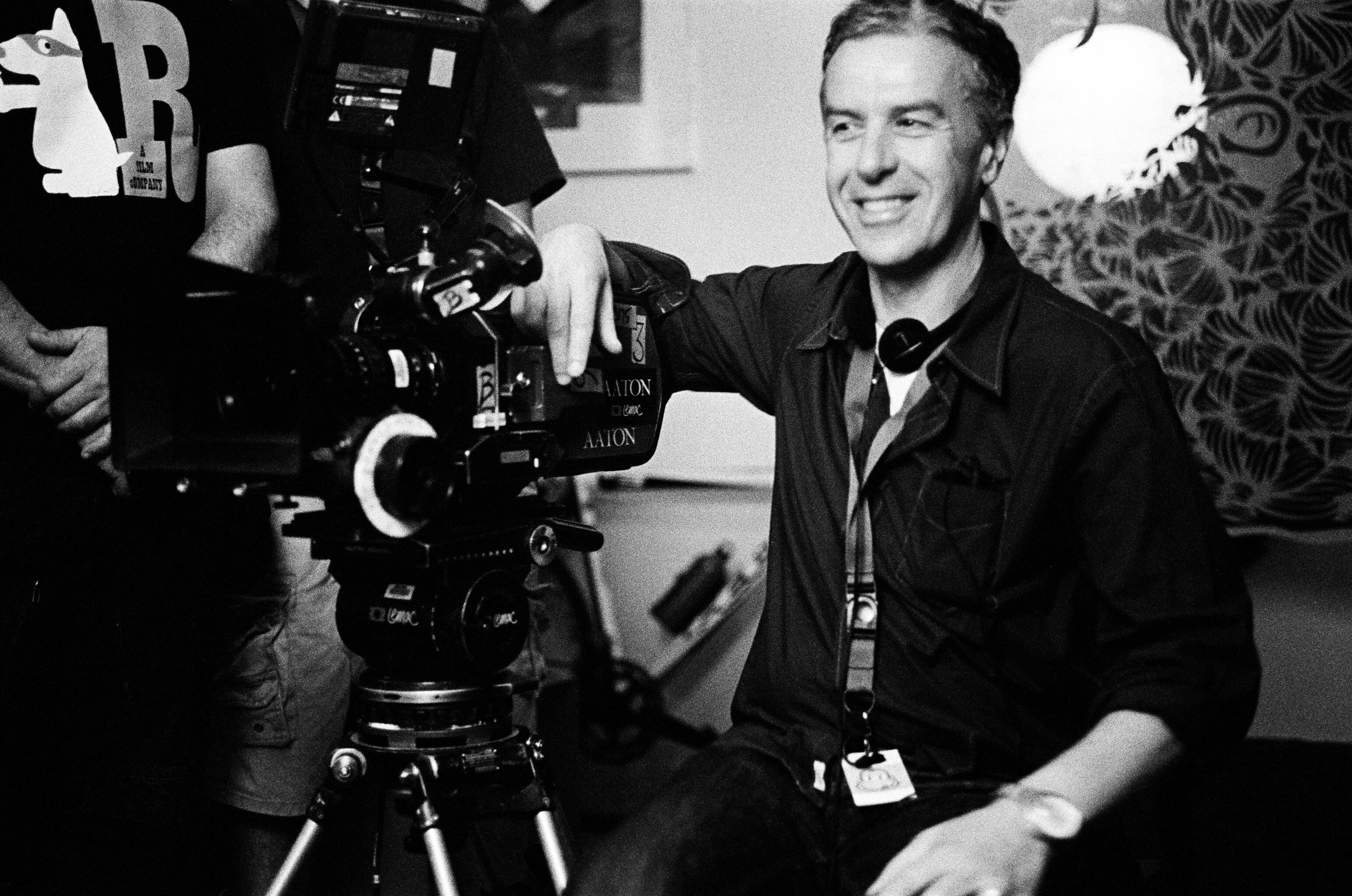Santo Cilauro doesn’t often think about his past experiences; rather he continues to look ahead, towards independent productions, cultural quality, research and writing.
And, paradoxically, it seems that up until today he has truly represented that “breaking of ethnic barriers” that his fictional character, Lou Interligi, boasted about in a satirical episode of The Late Show, back in 1992: “I am breaking down ethnic barriers and holding up a mirror to multicultural society.”
Together with Tom Gleisner, Rob Sitch and Jane Kennedy, Cilauro established one of Australia’s most successful film and television production companies, Working Dog Productions.
Founded 28 years ago, the company is behind films such as The Castle and The Dish, as well as television series including Have You Been Paying Attention?, Frontline, The Late Show, The Panel, Thank God You’re Here, The Hollowmen and Utopia.
While the digital age has certainly given new life to the entertainment industry, it hasn’t diminished the company’s edgy, satirical and timeless spirit.
“We love to create and work hard,” Cilauro says.
“I always use the term ‘we’ because we’re a team; even after all these years, we still write our ideas on a white board every morning.”
I sit across from Cilauro in a restaurant in South Yarra, after around a year of exchanging emails amid a pandemic that has disrupted every aspect of life; in fact, it saw the panel of comedians on Network 10’s Have You Been Paying Attention? participate in the game show from their homes, via video conferencing, for the first time ever.
While he sips his lemon and ginger tea, I order a platter of cured meats and cheeses only to discover, almost at the end of the interview, that Cilauro is a vegan.
“It’s not an ethical choice,” he tries to reassure me.
“If my mother cooks ragù, I eat it willingly.”
Cilauro was raised on Italian cuisine, among a Sicilian family from Licodia Eubea.
He spent his formative years immersed in the pages of 20th century literature and finding comfort in the darkness and magic of the cinema.
“I grew up in Collingwood in the 1970s and I liked seeking refuge in a small Italian cinema, Cinema Italia, where I saw some really bad films, but timeless classics; films starring Franco Franchi and Ciccio Ingrassia, and some bad movies about Hercules,” he laughs.
“Interestingly, my grandfather was the last person to go to that cinema; he was there alone on a Saturday evening, and the owners told him that they were permanently closing the business.
“He asked if he could see one last movie.
“The owners then sold the business and returned to Naples.
“My father, as a lawyer, was supposed to be in charge of the sale, but at the time he was overseas and so I took care of it.
“Strangely, I have a law degree but it’s lucky I didn’t continue because I would’ve been the worst lawyer in the world.
“Those extraordinary people also gave me the poster of a film of my choice.
“There were exceptional posters, including Fellini’s I Vitelloni, but I chose the most beautiful film I saw in that cinema: the semi-final of the 1970 World Cup between Italy and West Germany in Mexico City.
“In those days, football matches weren’t watched on television.
“I remember being nine years old and looking around at the nervous fans smoking and screaming.
“Italy won; it was a great moment.”
As a young law student and avid Azzurri fan, Cilauro was fortunate and enterprising enough to experience an incredible encounter with Italian football club Juventus.
“I was near the University of Melbourne, on my way to pick up some pizza from my aunts Rosa and Maria,” he recalls.
“My father, who was the chairman of the Victorian Soccer Federation at the time, told me that Juventus were having a press conference in Melbourne.
“I went to the hotel where it was taking place and saw [players] Zibì Boniek, Dino Zoff and Paolo Rossi.
“A journalist next to me asked the coach, Giovanni Trapattoni, who their translator was, and he replied with a thick accent: ‘No problema, I speak English’.
“After around 30 seconds, it was clear that he didn’t understand a thing.
“I jumped in to explain what they’d asked him and before I knew it, I was sitting next to Rossi and translating.
“At the end of the conference, I was invited to travel with the team, but after a while it became clear to me that my role was actually to take care of the players’ wedding rings.
“I had a piece of rope which I tied the rings to every night while they went out to have fun.
“I had to invent thousands of excuses to tell their wives... and those were my childhood heroes.
“One day my wife Morena, who was my girlfriend at the time, joined me at work and some players started talking to her.
“Cabrini was particularly impressed.
“She knew what they were like, but I was so embarrassed and horrified.
“They apologised for days.”
Thankfully, Cilauro has also made many positive football-related memories over the years.
“In 2006, I attended the match I’d been waiting for all my life: Italy versus Australia,” he says.
“It was a dream come true.
“Then I did everything I could to take my father to Japan to see the World Cup.”
Cilauro’s creative spark and passion for comedy are undoubtedly connected to his Italian heritage, and he’s inspired by Italy’s cultural treasures, from the pages of Pirandello to Caravaggio’s masterpieces.
“Sometimes they ask me who wrote a specific line in a film or a television show, but the answer is always the same: the character themselves,” he says.
“Pirandello wrote that every Sunday morning he sat in his study to meet his characters; I love the idea that they’re the ones who create their own momentum and inertia.
“We always try to be faithful to the characters, otherwise we would be creating beautiful white statues in camouflage.
“Although a lot changed in Australia in the 1980s – the new Made in Australia logo, growing nationalism, and a strange sense of pride – I’m happy that The Castle is still considered a suburban fairytale with a happy ending.
“They often ask me about a potential prequel or sequel, but it’s impossible for us, as is an American version that Hollywood would buy.
“We’d like to write an Italian version of the film instead, because the simplicity of the characters reminds me of those films I got lost in as a child at the cinema.”
Now an Australian icon, The Castle started out as an experimental project and Cilauro and his team could never have imagined how famous it would become.

A scene from The Castle
“We wanted to make the film, but we didn’t have enough money,” Cilauro explains.
“We were at the beginning of our careers and our producer told us we weren’t ready for cinema.
“Until then, we’d only worked in radio and television, but we wanted to make it.
“The story was Tom’s idea and it was extraordinary, so we thought of making a film ‘for practice’; that film was The Castle.
“We had money left over from the Frontline program so we immediately went to the Kodak factory in Coburg to find out how much film we could buy; the 35mm was way too expensive, but we could buy 180 minutes of film for a Super 16, a decidely cheaper option.
“We ended up making a 90-minute film, doing the maths on a blackboard.
“There was also food to think about: would we work for 14 days with bad catering or 10 days with good catering?
“We chose the second option; we had too many Italians, Greeks and Jews and the expectations were high.
“We got together and collected all the funniest stories from our families, exaggerating and making up others.
“We wrote the script, Jane did the casting, Tom did the rewrites, Rob directed it and I shot it.
“Our producer obviously bought The Castle and, extraordinarily, it went all around the world.”
Today, after more than 30 years of experimentation and creative growth, Cilauro still wonders what it means to do comedy.
“I don’t have a precise answer, but I know that it’s stimulating every time,” he says.
“One of our main processes is scrolling through the script; if a gag is too long, we stop.
“A bit like a fig: the less water you give it, the sweeter it will be.”
Cilauro then recalls with a smirk his experience of taking Thank God You’re Here’s format to Italy.
“I’ll never forget my first conversation with the producer Simona: she wanted to transform a one-hour show into a three-hour show,” he laughs.
“It was a show in which comedians walk through a door, finding themselves in an unknown situation.
“The purpose was to improvise and make people laugh, but the more she talked about it, the more she suppressed any kind of spontaneity; they even wanted to introduce slow motion.
“I explained that perhaps that wasn’t necessary, but she replied, ‘So what should our seminuda present?’.
“I started laughing impulsively and she asked me why I was laughing; I simply didn’t know that there was a specific name in Italian television for a showgirl in skimpy clothing [seminuda translates literally to ‘half-naked’].
“She then cut off my laugh by saying: ‘Look, the girl has a law degree’.
“It was as if I were the bad guy!
“Eventually, they filled the show with commercials and invited tonnes of celebrities and senators, but realised they’d made a mistake at the rehearsals when they had comedians on stage.
“And yes, it was fun, because that was the nature of the program, and because there were no former politicians on stage, as is always the case in Italy.”












